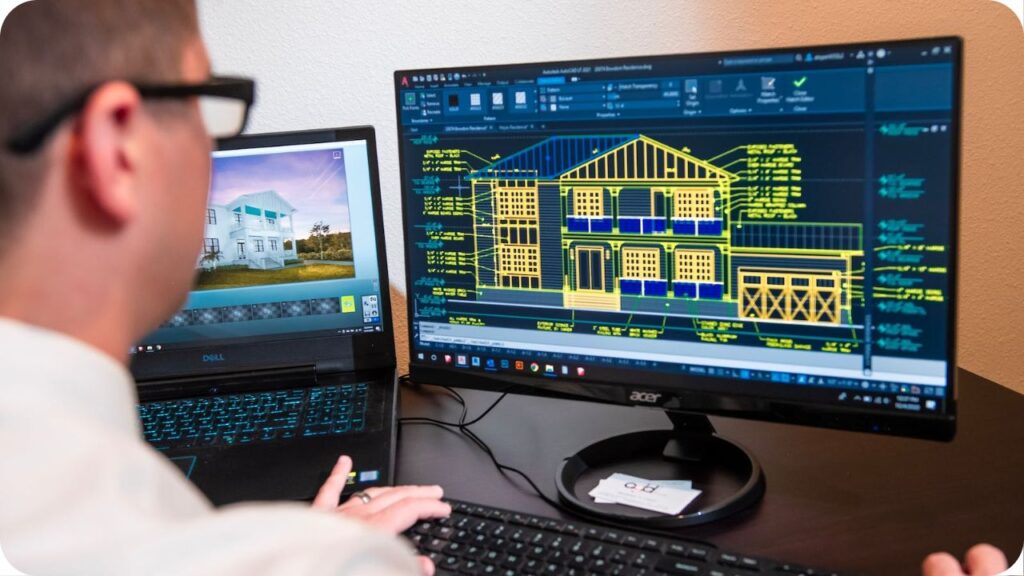Revolutionize Your Success: Real Estate Agent Mastery Unleashed with Proven Strategies
In the ever-evolving panorama of real estate, installing a sturdy online presence isn’t always handiest a luxurious; it is a need for real estate agents aiming for fulfillment in the virtual age. As ability customers increasingly more turn to the internet to find out homes and gather information, real estate agents have to adapt and leverage online tools to acquire and engage their target market efficaciously.
Tips for Real Estate Agents
I. Creating a Professional Website
A. User-Friendly Design
One of the foundational factors of a sturdy online presence is a nicely-designed, user-first-class internet website. A internet website serves as a digital storefront for real estate agents, imparting site visitors a glimpse into their data and to be had listings. Opt for a clean and intuitive format that allows customers to navigate seamlessly. Incorporate first-rate pics and make sure that assets listings are with out hassle reachable, offering a entire evaluation of the houses or commercial enterprise regions you constitute.
B. Showcasing Property Listings and Portfolios
A real estate agent’s internet website need to characteristic as a centralized hub for property listings and portfolios. Each listing need to characteristic charming visuals, unique descriptions, and pertinent records along with rectangular pictures, facilities, and pricing. Additionally, keep in mind incorporating a segment highlighting beyond a fulfillment transactions and purchaser testimonials to construct agree with and credibility.

II. Utilizing Social Media Platforms
A. Choosing the Right Platforms
The social media landscape is large, and now not all structures can be equally useful for each real estate agent. Research your audience to grow to be privy to the systems they common the most. While platforms like Instagram and Facebook are famous for visible content fabric, LinkedIn can be extra appropriate for connecting with experts within the real estate enterprise. Tailor your social media strategy to align with the options of your precise target market.
B. Engaging Content Strategies
Creating engaging content is key to capturing and retaining your audience’s attention on social media. Develop a content calendar that includes a mix of property highlights, industry insights, and behind-the-scenes glimpses into your work. Utilize visually appealing graphics and videos to stand out in the crowded social media landscape. Encourage audience interaction through polls, Q&A sessions, and contests to foster a sense of community.
C. Building and Nurturing Online Communities
Beyond posting content, actively engage with your audience by responding to comments and messages promptly. Fostering a community spirit around your brand has the potential to boost loyalty and generate referrals through positive word-of-mouth. Consider creating exclusive groups or forums where potential clients can ask questions, share experiences, and connect with others interested in real estate.
III. Leveraging Visual Content
A. Importance of High-Quality Photos and Videos
In the visually-driven realm of real estate, high-quality imagery is non-negotiable. Opt for professional photography to present properties in their most favorable and appealing manner. Professional photos not only enhance the visual appeal of your listings but also convey a commitment to excellence. In addition to static images, consider incorporating videos, virtual tours, or 3D imaging to provide potential buyers with a comprehensive virtual experience of the property.
B. Professional Real Estate Photography
Partner with experienced photographers who have expertise in the realm of real estate. They understand the nuances of capturing spaces effectively, emphasizing unique selling points and creating a visual narrative. Professional photos not only attract more eyes to your listings but also contribute to the overall branding of your real estate agency.
C. Virtual Tours and 3D Imaging
Stay ahead of the curve by incorporating immersive experiences into your online presence. Virtual tours and 3D imaging allow potential buyers to explore properties remotely, providing a realistic sense of space and layout. This technology not only sets you apart from competitors but also caters to the growing demand for digital exploration in the real estate market.
D. Incorporating Visual Content in Marketing Materials
Extend the use of visual content beyond online platforms to traditional marketing materials. Utilize visually striking images in brochures, flyers, and any printed materials. Consistent branding across both digital and physical realms reinforces your agency’s identity and leaves a lasting impression on clients.
IV. Search Engine Optimization (SEO)
A. Optimizing Website Content for Search Engines
Ensure your website is easily discoverable by optimizing it for search engines. Conduct keyword research to identify terms relevant to your target audience and integrate them naturally into your website content. Implement best practices such as meta tags, header tags, and alt text for images to enhance your website’s SEO performance.
B. Local SEO Strategies
Real estate is inherently local, making local SEO strategies crucial for attracting clients in your target area. Claim and optimize your Google My Business listing, ensuring accurate information about your agency, including contact details, business hours, and client reviews. Localized content, such as neighborhood guides and market insights, can further boost your local SEO efforts.

C. Creating Valuable, Keyword-Rich Content
Content is not only a tool for engaging your audience but also a powerful driver of SEO. Develop a content strategy that includes blog posts, articles, and other informative pieces relevant to your audience. By consistently producing valuable, keyword-rich content, you not only position yourself as an authority in the real estate field but also improve your website’s search engine rankings.
D. Utilizing Online Directories and Platforms
Beyond your website, leverage online directories and platforms to expand your digital footprint. Ensure your agency is listed on popular real estate platforms, local directories, and review sites. Consistent and accurate information across these platforms not only enhances your online visibility but also contributes to a positive online reputation.
V. Email Marketing
A. Building and Maintaining an Email List
Email marketing remains a powerful tool for real estate agents to nurture leads and stay top-of-mind with potential clients. Start by building a targeted email list consisting of individuals genuinely interested in real estate. Use sign-up forms on your website, social media, and events to capture leads. Segment your list based on criteria such as location, preferences, and engagement level for more personalized communication.
B. Crafting Engaging Email Campaigns
Design email campaigns that not only inform but also engage your audience. Feature property highlights, market updates, and exclusive content that adds value to your subscribers. Personalize your emails to make recipients feel like valued individuals rather than generic contacts. Utilize compelling subject lines and visually appealing layouts to encourage higher open and click-through rates.
C. Personalization and Segmentation for Better Results
Segmentation is the key to delivering content tailored to specific audience segments. Understand the diverse needs and preferences of your email subscribers and create targeted campaigns accordingly. Whether it’s first-time homebuyers, property investors, or individuals looking to sell, personalized content increases the likelihood of engagement and conversion.
VI. Networking and Partnerships
A. Collaborating with Local Businesses
Forge partnerships with local businesses to expand your network and reach a broader audience. Establish relationships with mortgage brokers, home improvement stores, and interior designers. Cross-promotional opportunities not only benefit both parties involved but also enhance your credibility within the community.
B. Joining Real Estate Associations and Communities
Active participation in real estate associations and online communities provides opportunities for networking, knowledge-sharing, and staying abreast of industry trends. Attend local events, join relevant online forums, and engage in discussions to build meaningful connections. Being part of these communities not only fosters professional growth but also opens doors to potential collaborations and referrals.
C. Hosting Events and Seminars
Organize events or seminars to showcase your expertise and provide valuable insights to your community. Topics could range from first-time homebuyer seminars to market trends and investment strategies. Hosting events positions you as an authority in your field and creates opportunities to connect with potential clients in a more personal and interactive setting.
VII. Client Testimonials and Referrals
A. Importance of Client Testimonials
Client testimonials are powerful endorsements that build trust and credibility. Encourage satisfied clients to share their experiences in written or video testimonials. Feature these testimonials prominently on your website, social media, and marketing materials to showcase the positive impact of your services.
B. Encouraging and Showcasing Positive Feedback
Actively seek feedback from clients throughout the buying or selling process. Positive experiences can be highlighted in marketing materials, while constructive feedback provides opportunities for improvement. Transparency and responsiveness in handling feedback demonstrate a commitment to client satisfaction.
C. Implementing Referral Programs
Implementing a referral program incentivizes clients to recommend your services to their network. Provide incentives such as rewards, discounts, or exclusive benefits in recognition of successful referrals. A well-executed referral program not only boosts your client base but also fosters a sense of loyalty among existing clients.
VIII. Analytics and Data-Driven Decision Making
A. Utilizing Analytics Tools for Insights
Implement analytics tools to track the performance of your online efforts. Platforms like Google Analytics can provide valuable insights into website traffic, user behavior, and the effectiveness of different marketing channels. By examining this data, you can make informed decisions and fine-tune your strategies to achieve improved results.
B. Adjusting Strategies Based on Performance Data
Regularly review and analyze the performance data from your various marketing channels. Recognize what is functioning effectively and pinpoint areas that could benefit from enhancement. Adjust your strategies based on these insights, whether it involves refining your social media content, tweaking your email campaigns, or optimizing your website for better search engine visibility.

C. Continuous Improvement Mindset
A commitment to a continuous improvement mindset is crucial in the dynamic field of real estate marketing. Keep abreast of industry trends, stay updated on emerging technologies, and remain attuned to evolving consumer preferences. Embrace change and be willing to adapt your strategies to stay ahead of the competition.
IX. Conclusion
In conclusion, building a strong online presence for real estate success requires a multifaceted approach. From creating a user-friendly website and leveraging visual content to implementing effective email marketing and networking strategies, each component plays a vital role in establishing your brand and attracting clients in the digital age. By staying abreast of industry trends, embracing innovative technologies, and fostering meaningful connections within the community, real estate agents can position themselves for sustained success in an ever-evolving market.
